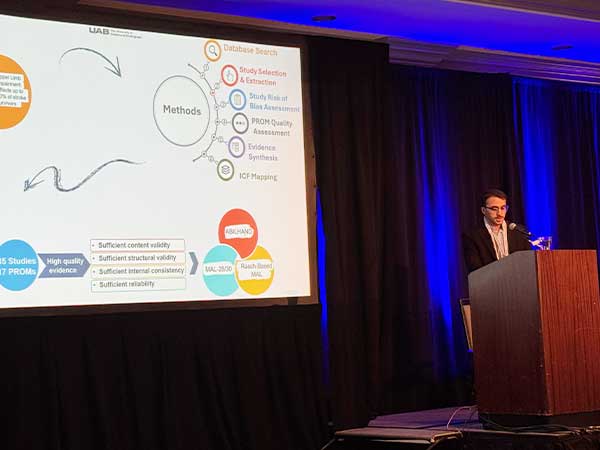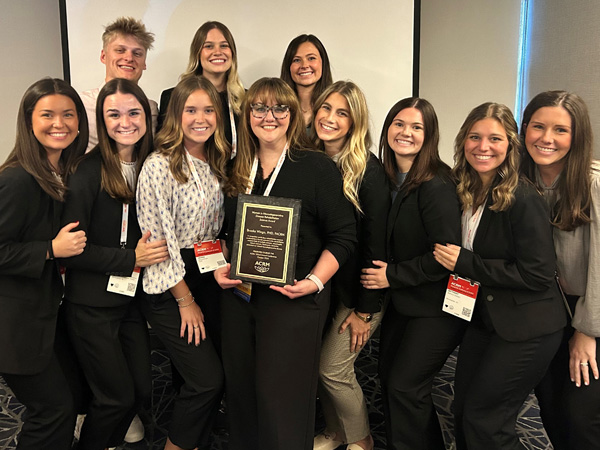Home and Community Based Services, opens a new website HCBS, are services for people with disabilities, funded by Medicaid. HCBS are an alternative to long-term residential institutions for people with disabilities. In Alabama they are run through the Alabama Department of Senior Services opens a new website (ADSS), the Alabama Department of Mental Health opens a new website (ADMH), the Alabama Department of Rehabilitation Services opens a new website (ADRS) and the Alabama Medicaid Agency opens a new website (AMA). Federal oversight is done by the Centers for Medicare and Medicaid Services opens a new website (CMS).
HCBS, are services for people with disabilities, funded by Medicaid. HCBS are an alternative to long-term residential institutions for people with disabilities. In Alabama they are run through the Alabama Department of Senior Services opens a new website (ADSS), the Alabama Department of Mental Health opens a new website (ADMH), the Alabama Department of Rehabilitation Services opens a new website (ADRS) and the Alabama Medicaid Agency opens a new website (AMA). Federal oversight is done by the Centers for Medicare and Medicaid Services opens a new website (CMS).
In Alabama HCBS are Medicaid waiver programs, of which there are seven – three run by ADMH, two by ADSS, one by ADRS and one by AMA. Each program provides different services to different groups of people.
A Brief History of HCBS
The first Home and Community Based Services came during the Kennedy presidency, with the Community Mental Health Act of 1963. Kennedy envisioned a national network of community-based services opens a new website for people with intellectual disabilities and mental illnesses. It was the last bill Kennedy signed while in office.
Almost a decade later, Ricky Wyatt, a 15-year-old Alabamian opens a new website, was institutionalized at Bryce Hospital in Tuscaloosa, Alabama. Bryce Hospital at that time was a residential institution for people with disabilities. Wyatt was not disabled. That, along with mass layoffs of staff at Bryce, was the catalyst of Wyatt v. Stickney opens a new website, a class-action lawsuit that lasted for over thirty years – ending in 2003 – and helped the national deinstitutionalization movement and the foundation of home and community based services.
Olmstead v. L.C. opens a new website was decided by the Supreme Court in 1999. It created a standard for institutionalization of people with disabilities – that community-based services must be provided in most circumstances. The Department of Justice, among other organizations, protects the right of people with disabilities to receive community-based services.
What HCBS Are Available in Alabama?
As previously mentioned, there are seven Medicaid waiver programs opens a new website in Alabama that provide home and community based services:
- The Alabama Community Transition (ACT) Waiver (pdf) opens a new website provides services to people living in a residential institution and provides services to facilitate transitioning out of an institutionalized environment.
- The Community Waiver Program (CWP) (pdf) opens a new website provides services for people with intellectual disabilities who “meet an Intermediate Care Facility . . . Level of Care.” The provided services facilitate a more independent non-institutionalized lifestyle for people with intellectual disabilities.
- The Elderly and Disabled (E&D) Waiver (pdf) opens a new website provides services to elderly and disabled Alabamians who meet a nursing home-level standard of care (care requirements that could require living in a nursing home). The provided services allow elderly and disabled Alabamians who may begin living in a residential institution to continue living outside of one.
- The Intellectual Disabilities (ID) Waiver (pdf) opens a new website provides services for people with intellectual disabilities who “meet an Intermediate Care Facility… Level of Care” and have an I.Q. below 70. The services provided are broader than the CWP and facilitate a greater level of independence for people with intellectual disabilities.
- The Living at Home (LAH) Waiver (pdf) opens a new website provides services for people with intellectual disabilities who “meet an Intermediate Care Facility… Level of Care.” The provided services facilitate a more independent non-institutionalized life for people with intellectual disabilities.
- The State of Alabama Independent Living (SAIL) Waiver (pdf) opens a new website provides services to people with disabilities with a broad range of diagnoses, including traumatic brain injuries, quadriplegia, muscular dystrophy, and “severely debilitating disease or rare genetic disease.” The provided services facilitate an independent lifestyle for people with various disabilities.
- The Technology Assisted (TA) Waiver for Adults (pdf) opens a new website provides services to people who are ventilator-dependent or have tracheostomies and are 21 or older. The services provided facilitate life outside of a nursing home, including private duty nursing, medical supplies, and assistive technology.
The Importance of HCBS
HCBS are a necessity to ensure more equitable living for people with disabilities. They provide supports and services that are essential in allowing many people with disabilities to live outside institutions and participate in the wider community.

